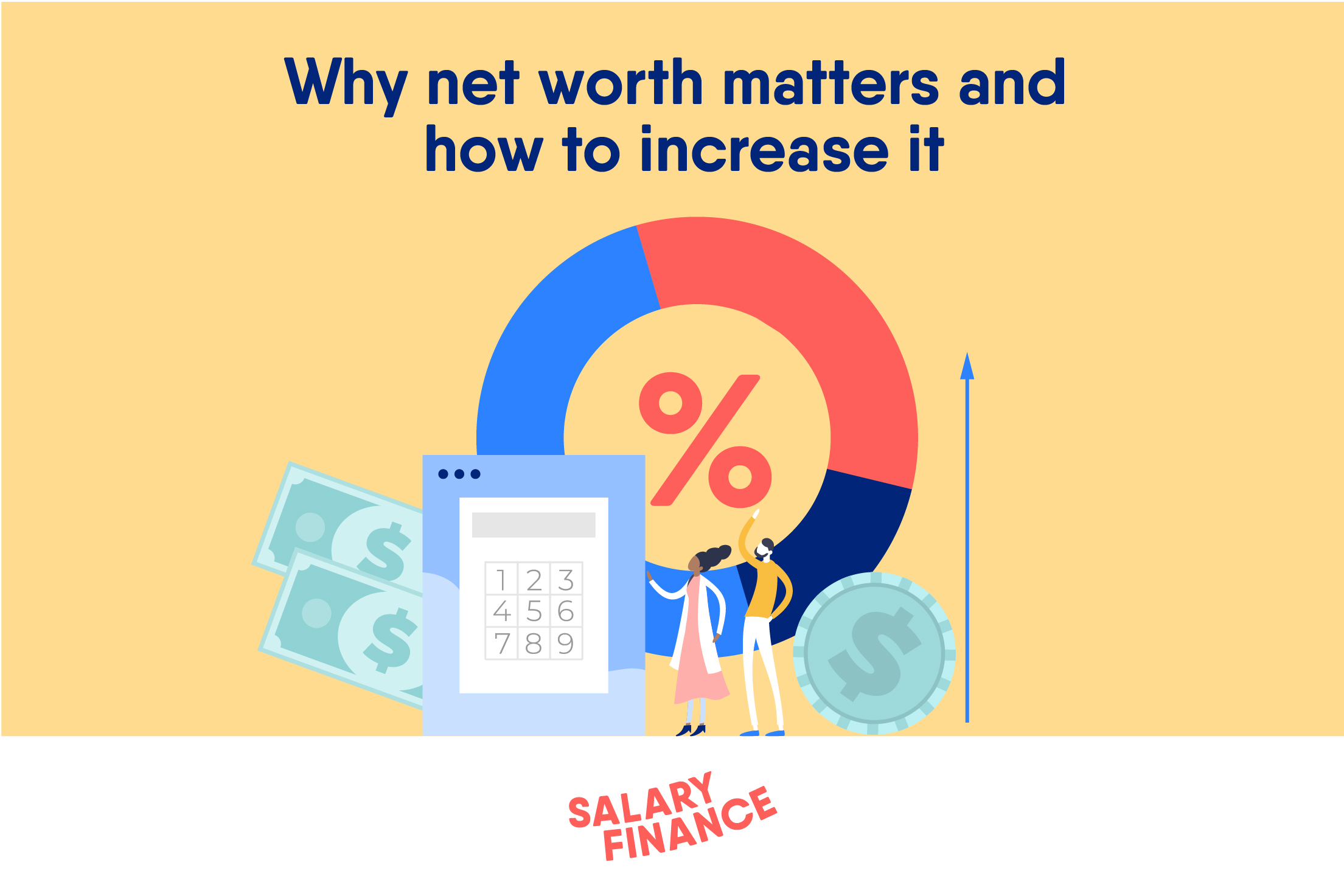
If you thought that simply owning a nice car and home meant you were financially healthy, you'd be mistaken. If your goal is to improve your overall financial wellbeing, then considering your net worth should be a part of it. Many people focus on metrics like their credit score, material possessions, or having access to exclusive, wallet-shattering experiences. But having all these things doesn't always equate to true wealth.
In fact, you can actually own many expensive things and have a great credit score without being financially healthy in the least bit. In reality, your net worth determines the wealth you've accumulated, and are able to count as personal assets, with real value.
How is it calculated?
Simply put, your net worth is calculated by tallying your assets and subtracting the total amount of your debts from that number.
For example, let's say you have a home and a car worth $200,000 together, plus a savings account with a balance of $50,000. However, you've got a debt balance owed on the home and car equal to $185,000. This means you've got a net worth of $250,000 minus $185,000 or $65,000.
Tracking and intentionally increasing your net worth is good a way to reach your financial goals. Here are some ways to focus on net worth, not just vanity metrics when it comes to personal finances.
Pay down or pay off your debt
There are two key ways to increase your net worth: decreasing liabilities (debt), and increasing assets (things of value that you own). If you make a plan to pay down debt, your net worth will increase accordingly. If this is your first step, then it's a good idea to check out our tips for paying down debt as fast as possible.
Increase the amount of assets you own
If you've paid down a substantial amount of debt, your next move would be to increase the amount of assets that you own. Adding more assets, or possessions with value attached to them, could mean investing in stocks, real estate, or even having cash reserves in a bank account.
Your best option here would be to acquire assets that are liquid, or easily converted to cash, and have a known market value — bonus points for assets that appreciate, or increase in value over time.
For example, your grandma's China set may be a valuable “asset," but it's not converted into cash very easily, nor is the market value objective or easily determined. For this reason, acquiring assets like stocks, real estate, or cash savings should be a priority when trying to increase your net worth.
Control your spending
At the end of the day, having enough money left over after paying all your bills will determine what you can put towards paying down debt and increasing the amount of assets you own. If increasing your net worth is a priority, your spending will have to follow suit.
You'd be surprised at how creating and sticking to a budget can help you find additional money to pay off debt or put away for a rainy day. Both of these activities will increase your net worth and improve your financial wellbeing.
Focus on what you can pass on
The truth of the matter is that you can't give away what you don't own. A credit score cannot be passed down to your children. You cannot give away a car with several payments remaining to anyone. But if you actually own something of value, not only will you have a better quality of life for yourself, but you may also be able to improve the quality of your loved ones or others in need.
If you need help calculating your net worth — tracking or increasing it — there are online resources that can help like NerdWallet’s Net Worth Calculator. You'll be glad you made the effort to improve your financial help using numbers that matter.






